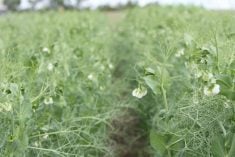Our lineup of stories this week should quash any lingering optimism that Canadian farmers can escape the impacts of a changing world order — or that the effects are temporary.
The U.S., one of Canada’s biggest customers for wheat, which is also its biggest competitor on global markets, is locking in multi-year purchase commitments with key customers such as Bangladesh and Indonesia that could reduce their demand for Canadian wheat.
Another article reports that BASF is launching a promising new canola hybrid in the U.S. years ahead of when Canadian farmers will gain access to it. Why? Approvals are bogged down in a review process that is taking 10 years to complete.
Read Also

Canada must change to remain a prosperous country
Several developments in early November will likely be important for the Canadian economy, including agriculture, helping define its evolution for the coming year and beyond.
Another story highlights Canadian agricultural economist Al Mussell’s continuing analysis of how the shift in the global agri-food trade environment is affecting everything from supply chain management to the reliability of U.S. futures markets as a pricing mechanism.
Our opinion section features an article about how Canada is falling behind in attracting innovation investment, which threatens its future competitiveness.
These are real-world examples of the multidimensional challenge that lies ahead if Canada is to retain and grow its position as a global exporter.
Prime Minister Mark Carney summed up the geopolitical risks Sept. 5 as he announced sweeping measures to re-orient the Canadian economy: “What’s going on is not a transition, it’s a rupture. And its effect will be profound,” he said.
“The changes in U.S. policy go beyond tariffs. Countries must now, in effect, buy access to the world’s largest economy through investments, through unilateral trade liberalization and policy changes in their home markets,” Carney said.
“This transformation of global trade is occurring against a backdrop of wider economic disruptions, geopolitical realignment, of AI and other technological transformations and the necessity, the imperative of a shift to a greener economy.”
For decades, Canada’s relationship with the U.S. was a pillar of its economic strength. Under the Trump administration, it has become our key vulnerability. The same could be said about China, which weaponizing trade in food commodities, most recently with its 75.8 per cent tariff on Canadian canola seed.
Eliminating Canada’s tariffs on Chinese-built EVs might appease the Chinese but would open the domestic market to a flood of imported, relatively inexpensive electric vehicles. That would smother Canada’s bid to build its own EV sector, not to mention eroding the market for Canadian biofuels.
Federal measures announced last week to grow Canada’s domestic biofuel market, increase market diversification investments and expanded interest-free loans are positive steps – even though it’s unrealistic to think the domestic market can serve as a proxy for lost export sales.
The canola sector is understandably disappointed by the lack of direct support, although that’s still a possibility. It’s unlikely governments will consider compensating growers before financial losses can be quantified, and existing farm supports are tapped out.
Compensation, while important as a stopgap, won’t secure the future.
In this environment, farmers must look beyond stabilizing the status quo. Policies, regulations, investment priorities and farm supports must all be examined if Canada is to pivot into the future.
Otherwise, the sector risks being hobbled by uncertainty.
Karen Briere, Bruce Dyck, Robin Booker, Paul Yanko and Laura Rance collaborate in the writing of Western Producer editorials.















